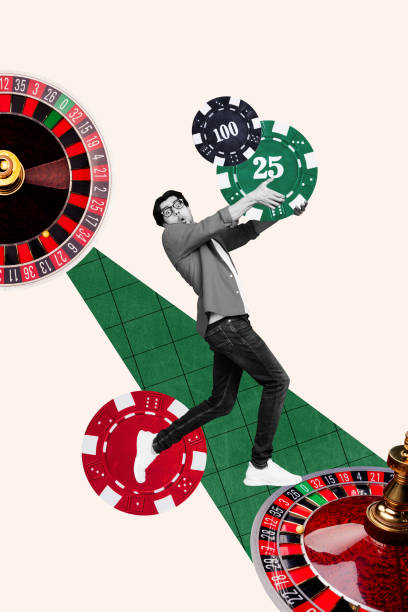The Intriguing Psychology of Risk in Gambling
The Allure of Uncertainty
Gambling draws individuals in with its exciting blend of chance and potential reward. The uncertainty of outcomes is a significant component that stimulates the thrill-seeking behavior in many people. This sense of unpredictability can often override rational thought, pushing players to take risks they might otherwise avoid in more mundane aspects of their lives. The adrenaline rush associated with wagering creates a captivating environment, heightened by the possibility of winning big.

For many, this allure is compounded by a phenomenon known as the “near-miss” effect, where players almost succeed in their endeavors. This psychological trigger leads individuals to believe they are fortunate enough to be close to a win, fostering a belief that persistence may eventually lead to success. Such perceptions can result in repetitive behavior, encouraging ongoing engagement in gambling despite the potential negative consequences of (none).
Emotional Regulation Through Gambling
The psychological landscape of gambling is often intertwined with emotional experiences. For some players, engaging in risky behaviors provides a temporary escape from stress and anxiety. The act of placing bets can serve as a coping mechanism, as individuals navigate their emotions through the highs and lows of the game. This emotional rollercoaster creates a unique bond between the gambler and the gambling experience, as they often seek to recreate the exhilaration associated with winning. In this regard, the options available online, like monopoly live, can be particularly appealing.
Moreover, the social aspect of gambling can amplify these emotional responses. Engaging in games with friends or in competitive environments can enhance feelings of camaraderie and shared excitement. However, this can also lead to increased pressure to perform, escalating risk-taking behaviors further. The intertwining of social interactions can become a double-edged sword, as it reinforces both positive and negative aspects of gambling.
The Role of Cognitive Biases
Cognitive biases play a crucial role in shaping gambling behavior. For instance, the illusion of control can lead players to believe they can influence the outcome of games of chance, such as poker or slots. This false sense of agency encourages riskier bets, as players often think their skills can outperform the inherent randomness of the game. Understanding these biases is essential in comprehending why individuals may continue to gamble despite poor odds.
Additionally, confirmation bias can keep gamblers engaged in trying to prove their theories about luck or skill. If individuals win after a particular strategy, they may falsely attribute their success to their method rather than the role of chance. This reinforcement of beliefs can trap players in a cyclical pattern of risk-taking and loss, ultimately perpetuating their gambling behavior.
Final Thoughts on Gambling and Its Psychological Impact
The psychology of gambling reveals a complex interplay between risk, emotion, and cognition. Understanding these dynamics provides valuable insights into why people are drawn to gambling despite its inherent dangers. Recognizing the psychological triggers that encourage such behavior can help individuals evaluate their relationship with gambling and make informed decisions.
As this intriguing topic continues to be explored, resources and information about responsible gambling practices are more important than ever. Engaging with reliable websites dedicated to education and support can offer insight and foster discussions around healthy gambling habits. By focusing on understanding the psychology behind risk in gambling, we can better navigate the intricate worlds of chance and choice.

